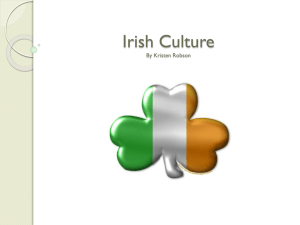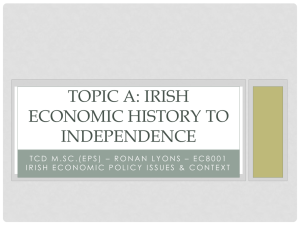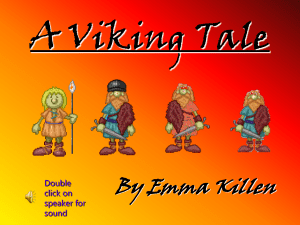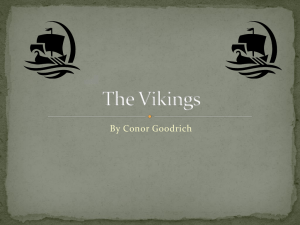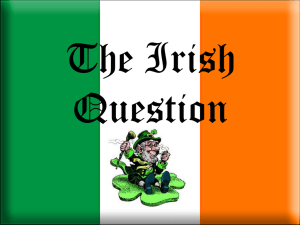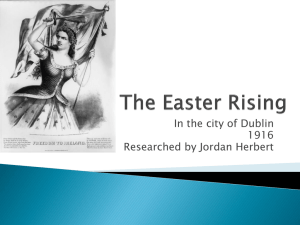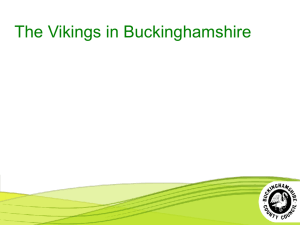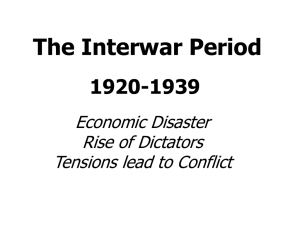Runes and alphabets in Viking Ireland
advertisement
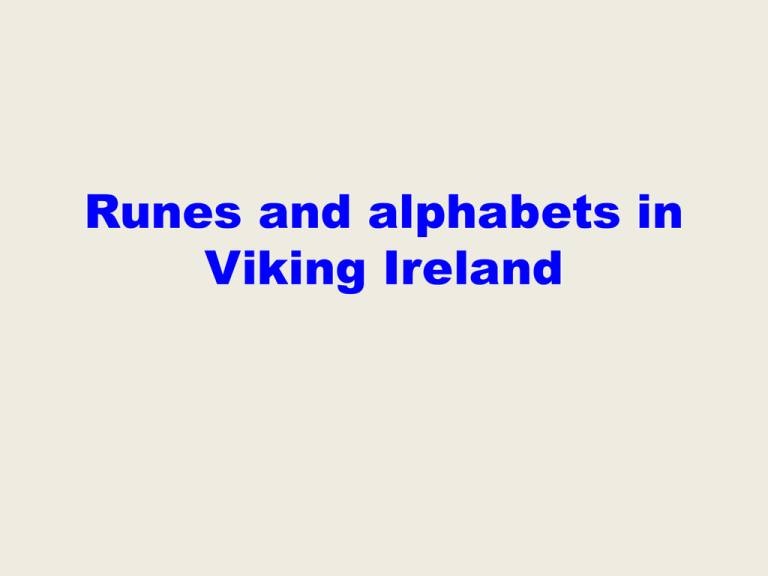
Runes and alphabets in Viking Ireland The first people who learnt to write used pictures to represent words These are Egyptian hieroglyphs as found painted on the walls of the chambers inside the pyramids. Over time, people learnt to use letters which each represented a sound. The alphabet we use today was first developed by the Etruscans in north Italy and then popularised by the Romans. Etruscan letters This is a Roman building brick, stamped with the name of the Tenth Legion (The Romans used X = 10) They brought their writing system all over the known world when they created the Roman Empire. When the Romans brought their alphabet to new lands, the letters often didn’t represent sounds in the new languages. People had to use combinations of letters so they would represent local sounds. • Bean is the Irish word for woman. How do you pronounce the first letter? But sliabh is the Irish word for mountain – and how do you pronounce the final two letters? Bh in Irish is a very different sound from B. • Rzecz is the Polish word for “thing”. RZ should be pronounced as j in the French word bon jour and CZ should be pronounced as in English change. Instead of inventing combinations of letters, the ancestors of the Vikings and the Irish both developed alphabets of their own. The Viking letters are called RUNES. Spears from Denmark made around the years 200 AD are inscribed with letters like this. This alphabet is called the Elder Futhark and they are the oldest type of RUNES. In Ireland, the alphabet the Irish developed is called ogham This alphabet was used on standing stones to inscribe the names of the dead. The man buried here was called “Little Bald one, son of Calf-Lord” and he died around the time of St Patrick. Both these alphabets – the runes and the ogham changed over time. Sometimes sounds dropped out of the languages so the symbols to represent them disappeared. Other times, new sounds were added so new symbols were necessary. • Runes also differed in various countries as the teachers and writers in each area worked out alphabets for themselves. • If you want to look at the story of this in more detail, look up the website: http://www.omniglot.com/writing/runic.htm Runes in Ireland We know what the runes used by Vikings in Ireland looked like because a man in Dublin carved the full alphabet on a piece of wood from an old barrel. Both runes and ogham letters were designed to be carved with a knife rather than written with a pen. This is why so few of the symbols have curves in them. One of these is the Viking runic alphabet from Ireland and one is ogham – which is which? The same sound in different alphabets • Sometimes the same sound existed in both languages but the Vikings and the Irish each had their own letter. Say the word KICK aloud. Now say the word CAN. What sound do both these words begin with? The Irish represented this sound with a C while the Vikings represented it with a K. So the Irish would write a man’s name as CORMAC and the Vikings would write the same name as KORMAK. Similarly, the Irish would write FIACC and the Vikings would write FIAK. • Can you write your own name in ogham or in runes? If there are not enough letters in the alphabet the Vikings used in Ireland – try writing it in the Elder Futhark like the Danes. The Viking learn the use of the dot from the Irish • You may notice on old shop signs writing that looks like this. It is called the seanchló and it represents an Irish alphabet in which a dot is used where today we’d use a “h”. This dot changes our pronounciation. What is the English version of this name? The dotted runes • Over time the Vikings also began to use a dot and, like the Irish, they used it to represent sounds for which they did already not have runic symbols. These new symbols were added to the Viking alphabet around the year AD 1000, in the lifetime of King Brian Boru. Thorgrim’s grave marker at Killaloe The dead man’s name was carved in runes as þurkrim but there is a dot over the k which changes the sound to a “g”. The first letter is the special Viking letter “thorn” which does not exist in our modern alphabet but which we represent with the letters “th”. So this man’s name was THURGRIM. In the Ogham alphabet, however, they spelt his name as TORQRIM. He remains one of the very few early Viking settlers in Ireland whom we know by name. It is fascinating that his family decided to commemorate him with a grave stone carved in both the Viking and the Irish alphabets. Can you invent an alphabet of your own? When J.R. Tolkien was writing the Lord of the Rings he invented languages and alphabets for his various characters. Can you invent a language and an alphabet of your own? Decide what sounds your language has and then draw symbols to represent them. Act out a scene in class where you try and talk to people in your own “secret” language.
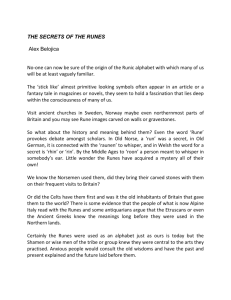
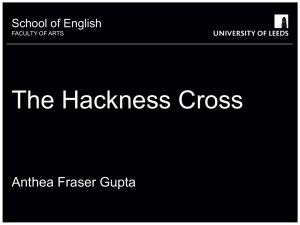
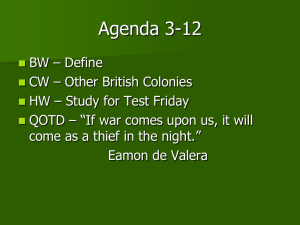
![South east presentation resources [pdf, 7.8MB]](http://s2.studylib.net/store/data/005225551_1-572ef1fc8a3b867845768d2e9683ea31-300x300.png)
